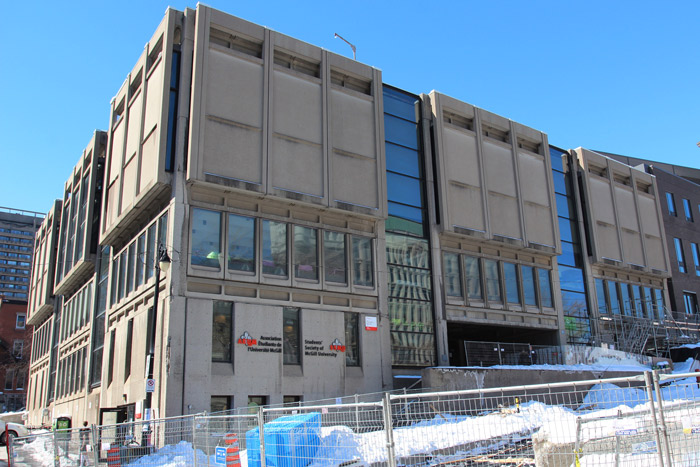After more than three months of consultations with the Community Disclosure Network (CDN), on July 5, the Students’ Society of McGill University (SSMU) announced that it had completed the first draft of a SSMU Gendered and Sexualized Violence Policy (GSVP). The draft is currently being reviewed by student groups on campus identified as stakeholders for their work against violence in the McGill community. The CDN also released a report summarizing their consultations with survivors and stakeholder groups to the public. The report outlines the CDN’s recommendations for the creation of pro-survivor frameworks for the disclosure of gendered and sexualized violence at SSMU, and lays out a schedule for the creation and implementation of the policy. The CDN plans to finalize the policy in February.
Efforts to develop a SSMU GSVP began last school year after both former SSMU vice-president (VP) external David Aird and former SSMU president Ben Ger resigned following allegations of sexual and gendered violence respectively. Current SSMU VP Internal Maya Koparkar credits the CDN with bringing to SSMU’s attention its serious lack of structure for reporting cases of sexual violence and holding perpetrators accountable.
“We found that there was a lot of confusion in some of the processes for people [who] had experienced sexual violence, not just in a SSMU context,” Koparkar said. “In general, a lot of people would come to SSMU and we didn’t really have a framework to direct people to proper resources, or to help them deal with any issues they might be having if someone was an officer or was involved in the situation.”
According to a representative of CDN who wished to remain anonymous, the group was initially formed to collect disclosures from those affected by Aird’s actions and draw attention to the SSMU’s systemic flaws. After successfully urging SSMU to take action against Aird in a pair of statements and his resignation, the CDN continued to play a strong role in advising SSMU executives as they developed the policy. According to the CDN representative, a strong ongoing response to disclosures of sexualized violence is crucial to ensuring that the McGill community does not become complacent following the resignations.
“It’s really important that we acknowledge that because of what happened, calling out one person isn’t going to fix the problem,” the representative said. “The problem is going to continue to exist and we need to put the procedures in place in order to protect people in the future.”
According to the CDN report, the policy will include a number of means for achieving ongoing and improved justice for survivors. The CDN’s suggestions are organized into three categories: Pro-survivor Frameworks, Implementation, and Accountability. Among the suggested reforms are training for all SSMU executives and other staff on how to handle reporting and disclosures, a focus on proactive and reactive measures on campus, the creation of a guide to the policy and reporting structures on campus accessible to all SSMU members, and continued lobbying of McGill University to change its existing Sexual Violence Policy.
Community engagement was central to the creation of the GSVP. Forums for feedback, which were used to consult the McGill community during the first round of drafting, will be implemented for the second draft in September. SSMU executives have also been reading responses to an online feedback form which will remain open throughout the summer and into the next phase of policy drafting. According to Koparkar, SSMU is communicating developments of its policy to McGill administration, which has its own sexual violence policy. However, the policy should be created primarily by a community of SSMU members, especially those affected by gendered or sexual violence.
Queer McGill (QM), one of the stakeholder groups identified by the CDN, will be reviewing the first draft of the policy before its public release in the fall. According to QM Administrative Coordinator Mads Motush, some people think it is very important that survivor-based support is central to the development of the policy. Others, however, see it as difficult emotional labour being done for free for SSMU by the stakeholder groups. While Motush is very optimistic about the long-term success of the policy, they admit to having doubts about the implementation and its timeline.
“There are a lot of good ideas going around but it's going to be hard to implement them,” Motush said. “I'd never underestimate the power of student groups, but the timeline they've proposed so far just seems unrealistic to me, to have it all done by the end of Winter semester. I would love for that to happen, but the stakeholder groups are meeting only for the first time [in late August].”
Although the CDN representative believes that the GSVP is an important step towards justice for survivors, gendered and sexualized violence can only be reduced through personal and interpersonal accountability,
“Abusers are trained in the language of consent,” the representative said. “Just because people have taken consent training courses or say they’re feminists doesn’t mean they’re incapable of violence and abuse. We are all capable of violence, and we need to check each other and ourselves.”








